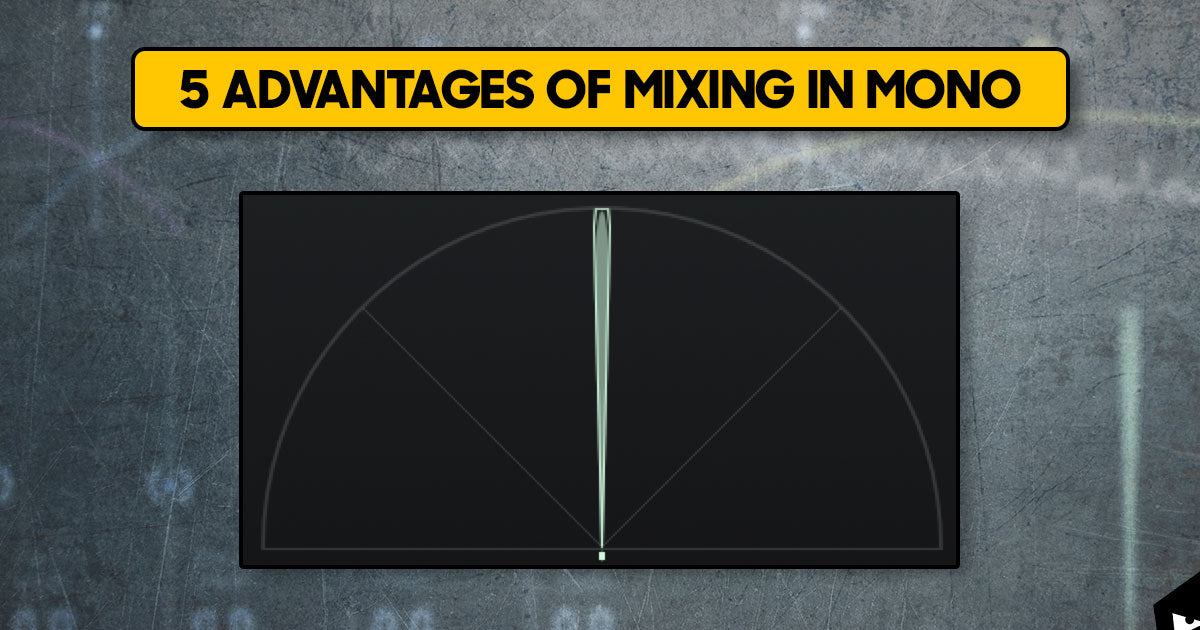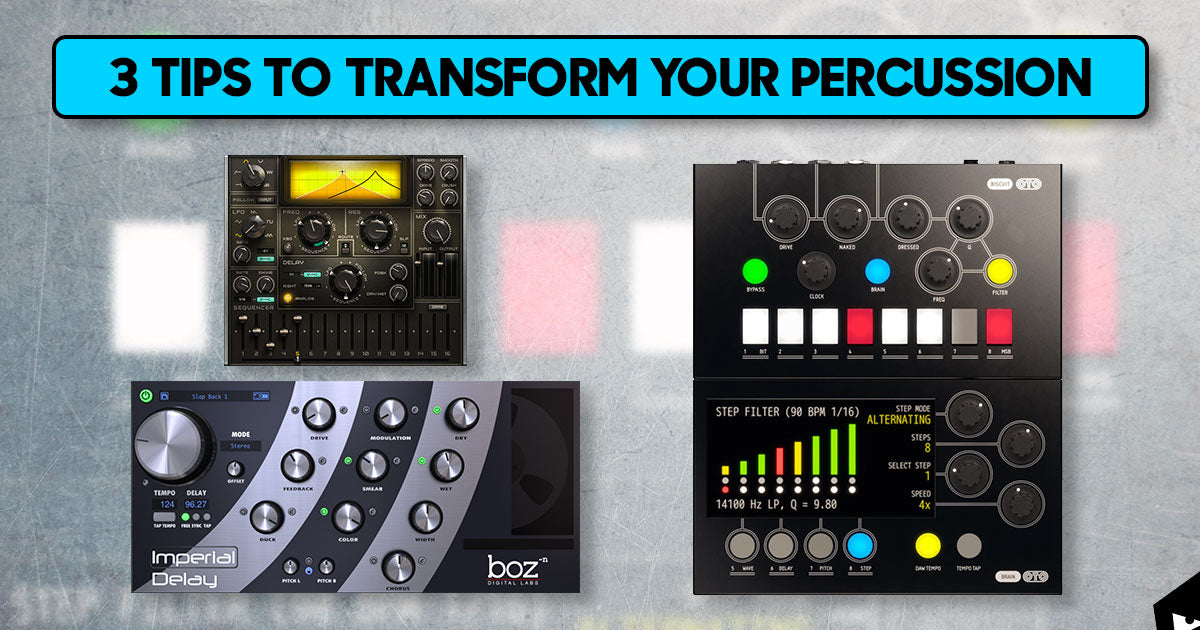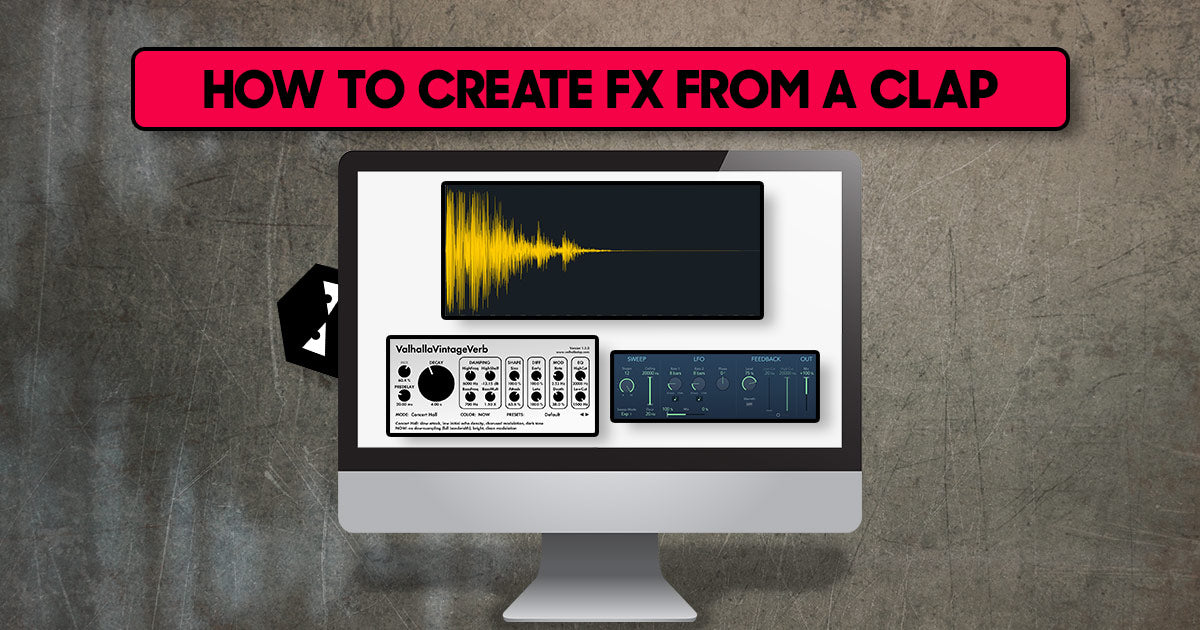Audiotent Tip 411. 5 Advantages of mixing in mono.
Mixing in mono isn't for everyone, but there can be some great advantages in doing so. If you've not tried it before, we suggest you give it a go on your next mix. Simply drop a plugin on your master bus that allows you to sum the left and right channels into one channel and enjoy some of the benefits of mixing in mono.
We don't suggest mixing the entire track, choosing elements and creating sounds whilst in mono, this is to be used sparingly, switching back and forth during your session.
Here are 5 advantages of mixing in mono.
1. Better EQ decisions
2. Less ear fatigue
3. More accurate balancing of instruments
4. Easier positioning of instruments
5. Quickly spot phase issues
Better EQ Decisions
Having everything summed together in mono can be a great tool when you have two elements fighting for the same space in a mix. When you have these elements in mono you can really hone in the masking frequencies and make better mixing decisions.
Less Ears Fatigue
When mixing in mono you will find that you'll trust your ears more and will be able to mix at lower levels. Being able to mix at lower levels will then, in turn, reduce ear fatigue, especially when working on a mix for hours on end.
More Accurate Balancing of Instruments
Another great advantage of mixing in mono is achieving a better balance between instruments. Just like advantage number 1, when listening in mono, it can help you to really narrow your focus and better position elements in terms of volume against each other.
Easier Positioning of Instruments
Panning in mono gives you a different perspective on placing your elements within the mix. As you make small adjustments in panning you will hear your instruments sit in their sweet-spot. Mono can help to reveal when they're fighting for position and or frequency much more easily.
Quickly Spot Phase Issues
Summing a mix or your channel is the quickest and easiest way to spot any phasing issues. Sometimes it can be hard to spot these issues when listening in stereo, but as soon as you check in mono the sound disappears or sounds thin. By regularly checking the mix/individual channels in mono we can help avoid these mistakes early on.
Do you already mix in mono? Have you found it useful? Have you found any other advantages? Let us know in the comments below.
Mixing in mono isn't for everyone, but there can be some great advantages in doing so. If you've not tried it before, we suggest you give it a go on your next mix. Simply drop a plugin on your master bus that allows you to sum the left and right channels into one channel and enjoy some of the benefits of mixing in mono.
We don't suggest mixing the entire track, choosing elements and creating sounds whilst in mono, this is to be used sparingly, switching back and forth during your session.
Here are 5 advantages of mixing in mono.
1. Better EQ decisions
2. Less ear fatigue
3. More accurate balancing of instruments
4. Easier positioning of instruments
5. Quickly spot phase issues
Better EQ Decisions
Having everything summed together in mono can be a great tool when you have two elements fighting for the same space in a mix. When you have these elements in mono you can really hone in the masking frequencies and make better mixing decisions.
Less Ears Fatigue
When mixing in mono you will find that you'll trust your ears more and will be able to mix at lower levels. Being able to mix at lower levels will then, in turn, reduce ear fatigue, especially when working on a mix for hours on end.
More Accurate Balancing of Instruments
Another great advantage of mixing in mono is achieving a better balance between instruments. Just like advantage number 1, when listening in mono, it can help you to really narrow your focus and better position elements in terms of volume against each other.
Easier Positioning of Instruments
Panning in mono gives you a different perspective on placing your elements within the mix. As you make small adjustments in panning you will hear your instruments sit in their sweet-spot. Mono can help to reveal when they're fighting for position and or frequency much more easily.
Quickly Spot Phase Issues
Summing a mix or your channel is the quickest and easiest way to spot any phasing issues. Sometimes it can be hard to spot these issues when listening in stereo, but as soon as you check in mono the sound disappears or sounds thin. By regularly checking the mix/individual channels in mono we can help avoid these mistakes early on.
Do you already mix in mono? Have you found it useful? Have you found any other advantages? Let us know in the comments below.




2 comments
Leave a comment
This site is protected by hCaptcha and the hCaptcha Privacy Policy and Terms of Service apply.